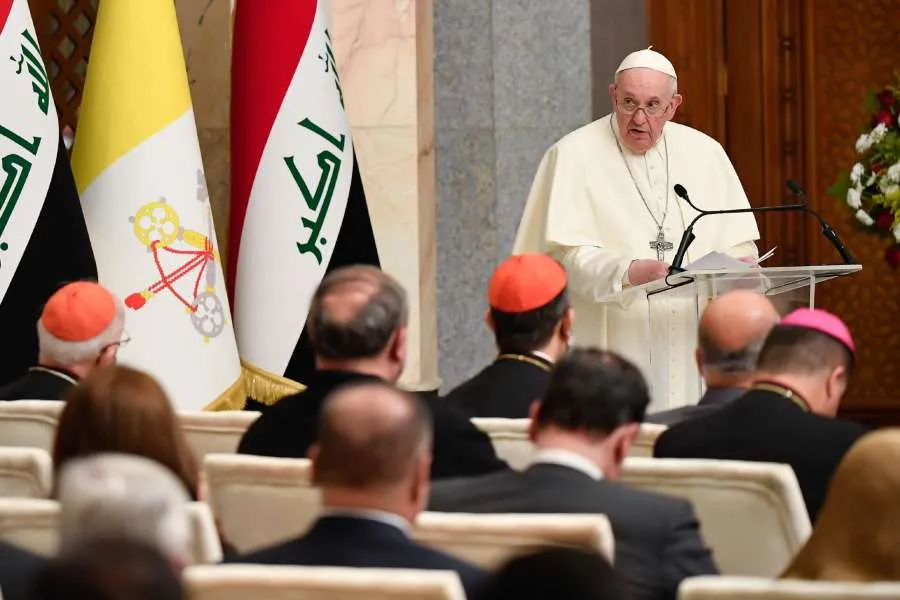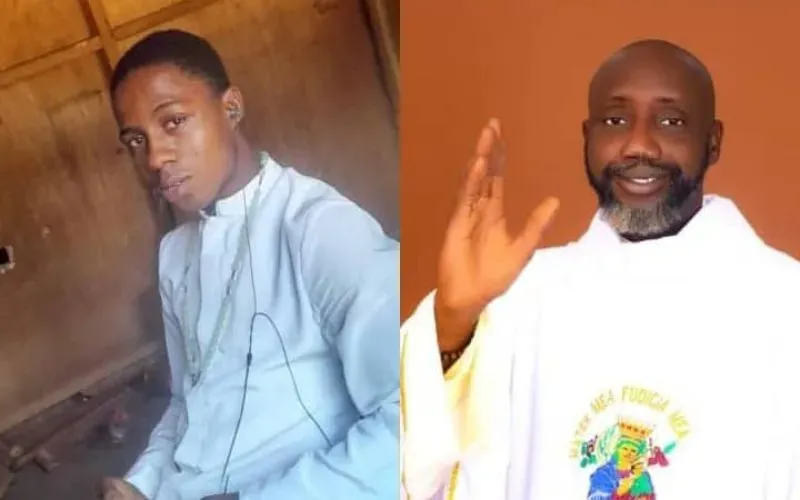Pope Francis declared in his speech to Iraqi government leaders that it is “necessary, but not sufficient, to combat the scourge of corruption, misuse of power and disregard for law.”
“At the same time, it is necessary to build justice, increase honesty, transparency and strengthen the institutions responsible for this,” the pope said.
“In this way, stability within society grows and a healthy politics arises, able to offer to all, especially the young of whom there are so many in this country, sure hope for a better future.”
About 60% of Iraqi’s population is under the age of 25. The unemployment rate for young people in Iraq is estimated to be 36%, according to a report published by the Atlantic Council in February.
Low oil prices, government waste and corruption, and a poor security situation further hinder the country’s potential for economic growth.
(Story continues below)
There were about 150 people present for the pope’s speech at the presidential palace, according to the Vatican. This palace was spared during the 2003 bombing of Baghdad by the United States and later became the headquarters of the coalition forces during the occupation of Iraq.
“Over the past several decades, Iraq has suffered the disastrous effects of wars, the scourge of terrorism and sectarian conflicts often grounded in a fundamentalism incapable of accepting the peaceful coexistence of different ethnic and religious groups, different ideas and cultures,” Pope Francis said.
“All this has brought in its wake death, destruction and ruin, not only materially: the damage is so much deeper if we think of the heartbreak endured by so many individuals and communities, and wounds that will take years to heal.”

The pope highlighted the “age-old presence of Christians” in Iraq and said that “their participation in public life, as citizens with full rights, freedoms and responsibilities” will testify to healthy pluralism and “contribute to the nation’s prosperity and harmony.”
Pope Francis also pointed to the suffering endured by the Yazidis, who he said were “innocent victims of senseless and brutal atrocities, persecuted and killed for their religion, and whose very identity and survival was put at risk.”
“Only if we learn to look beyond our differences and see each other as members of the same human family, will we be able to begin an effective process of rebuilding and leave to future generations a better, more just and more humane world,” he said.
“In this regard, the religious, cultural and ethnic diversity that has been a hallmark of Iraqi society for millennia is a precious resource on which to draw, not an obstacle to be eliminated.”

“Iraq today is called to show everyone, especially in the Middle East, that diversity, instead of giving rise to conflict, should lead to harmonious cooperation in the life of society.”
The pope also expressed gratitude to all humanitarian organizations who have worked to provide assistance to refugees, internally displaced persons, and worked to meet the basic needs of the poor.
“It is my prayerful hope that the international community will not withdraw from the Iraqi people the outstretched hand of friendship and constructive engagement, but will continue to act in a spirit of shared responsibility with the local authorities, without imposing political or ideological interests,” the pope said.
Courtney Mares is a Rome Correspondent for Catholic News Agency. A graduate of Harvard University, she has reported from news bureaus on three continents and was awarded the Gardner Fellowship for her work with North Korean refugees.








